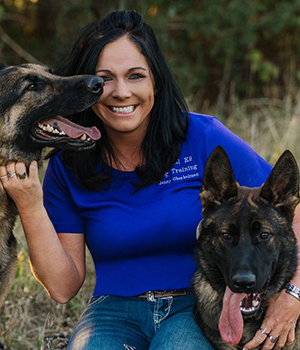Vital Dog Training Methods for a Lifetime of Excellent Actions
Reliable dog training is fundamental to promoting a well-behaved buddy that improves our lives. Crucial strategies, such as positive reinforcement and regular command training, not just enhance obedience but also reinforce the bond between owner and pet dog. Recognizing canine behavior and employing socialization techniques can prevent prospective problems before they arise. The trip does not end with basic commands; resolving behavior difficulties requires a nuanced method that lots of overlook. What are the crucial components that can change your training experience and make sure long lasting results?
Comprehending Pooch Actions

Furthermore, understanding the innate impulses and drives of a pet dog-- such as victim drive, social communications, and territorial behaviors-- enables trainers to anticipate and take care of particular actions. A pet with a strong victim drive might require various approaches than one that is more socially inclined.
In addition, early socialization and exposure to different settings considerably affect a canine's habits and character. Positive experiences throughout crucial developing periods can bring about well-adjusted adult canines, whereas negative experiences may lead to stress and anxiety or aggression.
Positive Reinforcement Approaches
Amongst the various dog training techniques, favorable reinforcement approaches stand out for their performance and capability to reinforce the bond between pet dog and trainer (Ohana K9 Academy). This technique stresses satisfying desired actions rather than penalizing undesirable ones, promoting a much more cooperative and trusting connection
Favorable support can take many kinds, including treats, praise, toys, or playtime. The secret is to supply immediate benefits when the pet dog shows the preferred habits, permitting them to make the connection in between the activity and the favorable result. If a pet dog sits on command, offering a reward right away enhances that actions, making it extra likely to be repeated.
Consistency is crucial in positive reinforcement training. Fitness instructors must use the same cues and rewards to prevent puzzling the canine. Additionally, varying the incentives can keep the dog's interest and motivation, transitioning from frequent treats to periodic appreciation or play as the canine masters the behavior.

Basic Command Training
Structure on the foundation established through positive reinforcement methods, basic command training works as an essential action in creating a well-mannered pet dog. This training commonly incorporates important commands such as "rest," "stay," "come," and "down - Ohana K9 Academy." Each command plays an essential role in promoting effective communication between the pet and its owner, enhancing the overall bond
Begin with brief, concentrated sessions lasting no even more than 5 to 10 minutes to maintain your pet's attention. Use high-value treats as rewards, making sure the pet links proper habits with favorable end results.
Perseverance is crucial; dogs may require many reps to comprehend commands fully. Routine technique reinforces learned commands, solidifying them in your dog's this actions arsenal.
Socializing Techniques
In the realm of canine training, socializing strategies are essential for growing a well-adjusted and certain canine buddy. Reliable socialization entails exposing your pet dog to a range of settings, people, and other pets in a regulated and positive way. The main objective is to assist your dog create a convenience degree with varied experiences, which can significantly minimize worry and stress and anxiety in unfamiliar circumstances.
Begin socialization throughout the important developmental home window of 3 to 14 informative post weeks, when young puppies are most responsive to new experiences. Introduce your pet to various setups, such as parks, urban areas, and homes with other family pets. Ensure these experiences are favorable by utilizing treats and appreciation to strengthen good habits.
Group training classes are an moved here excellent way to reveal your dog to other pet dogs and individuals in a structured environment. This allows for supervised communications, aiding your canine learn appropriate social cues. Regular outings and playdates with courteous pets can additionally enhance social abilities.
Attending To Behavioral Issues
Resolving behavior issues in pet dogs is an important facet of training that requires a systematic technique and understanding of canine habits. Typical problems such as barking, eating, aggressiveness, and anxiousness can come from numerous elements, including absence of socializing, insufficient workout, or even clinical concerns.

In addition, developing a structured regimen that includes normal exercise and mental excitement can dramatically relieve behavioral problems. Interactive playthings can maintain a pet dog engaged and lower destructive propensities. In cases of severe aggression or anxiousness, seeking advice from with a professional pet dog fitness instructor or a veterinary behaviorist might be necessary.
Conclusion
In verdict, reliable dog training strategies, including favorable support, standard command training, and socializing, are important for promoting great habits throughout a canine's life. Dealing with behavioral problems with a methodical technique not only improves obedience however likewise enhances the bond between pet dogs and their proprietors.